How the army shaped Sepp Blatter
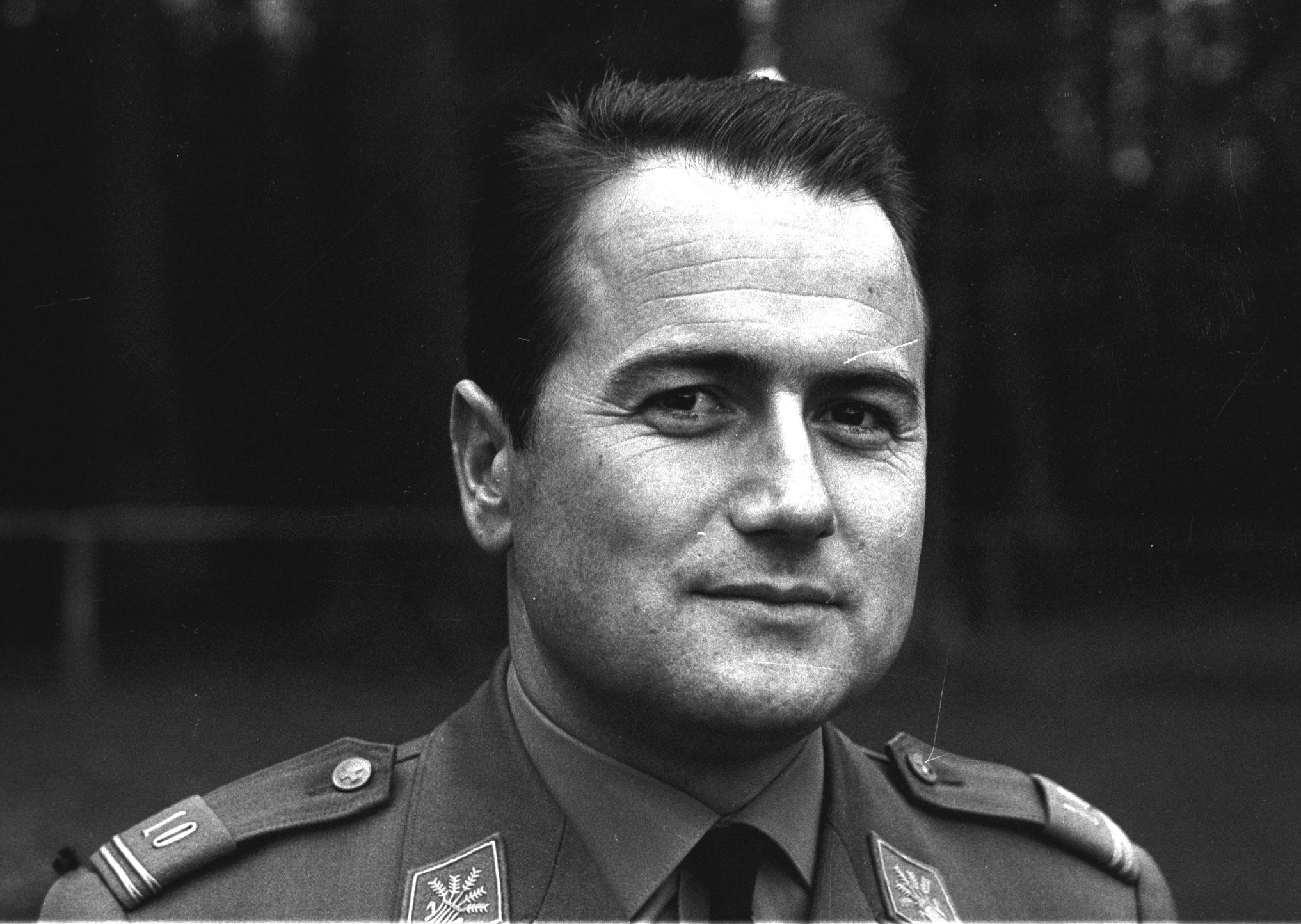
Sepp Blatter, FIFA’s long-time president, has come to be known for his shrewd command of world football's governing body. Less known is the position of authority he held at an earlier time as a Swiss army colonel.
As the commander of an organisation which has been under attack by critics since the beginning of his first mandate in 1998, Blatter had earlier experience in running a big group under a perceived threat, namely as the colonel of an army unit at the height of the cold war.
Bruno Affentranger, Swiss author of the 2007 biography on Blatter entitled “Sepp – König der Fussballwelt” (Sepp – King of the football world), says that while the 79-year-old generally operates in a very disciplined mode, much of what he knows about commanding others originated from his professional life, and not the other way round. For him, Blatter’s army experience was “just another step” in his driven life.
“But if he learned one thing in the army it was to be suspicious… to be on guard 24 hours a day and to watch out.”
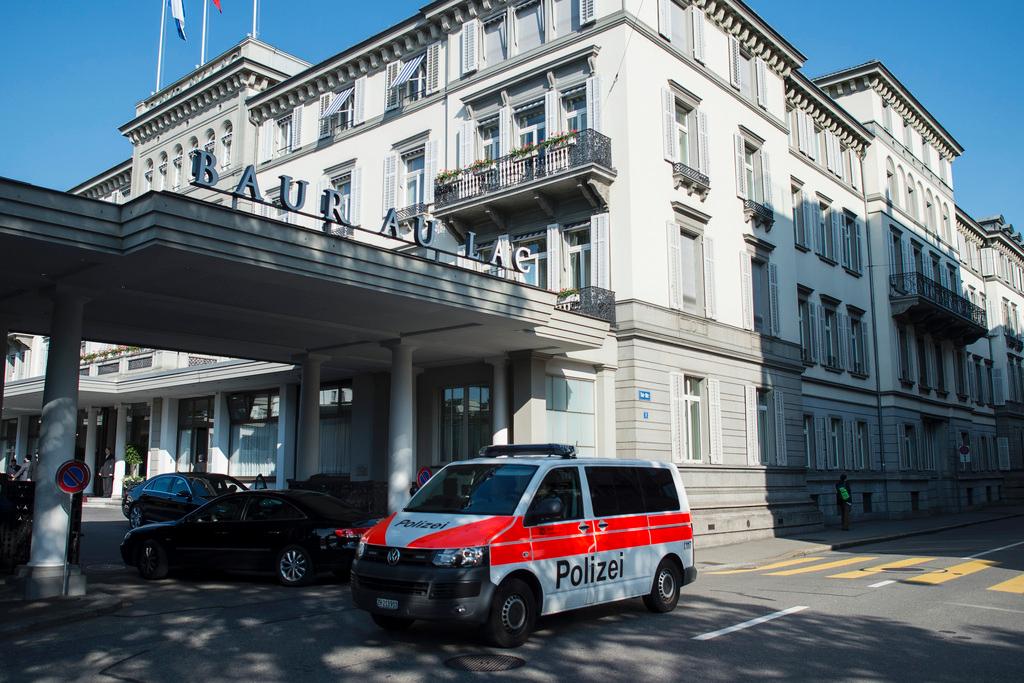
More
FIFA corruption targeted in sweeping US, Swiss probes
Cold war defences
Blatter’s military career coincided with Switzerland’s military preparation within the international context of the cold war from the mid-1950s until the 1980s. During this period, the country’s militia system embodied over 10% of its population, approximately 625,000 (in 1961), before the Armee XXI reforms, adopted by referendum in 2003, announced the goal of dropping the number to 100,000 by 2020.
In the decades following the Second World War, the military prepared for a possible invasion by forces controlled by the Soviet Union, which it feared would take over strategic transport routes through the Alps. An elaborate system of mined roads and bridges were established and alpine bunkers built. In spite of the country’s neutrality, Swiss soldiers were trained to fight against the hypothetical “red” enemies, with “blue” forces qualified as those from “friendly” forces.
“We built up walls and kept watch 24/7, to see what our enemies are doing”, Blatter told Affentranger. “We watched them early as they approached, so we could act and not react.”
Affentranger said he was surprised to hear Blatter use such belligerent terms to defend FIFA under his presidency when, in 2002, FIFA Secretary General Michel Zen-Ruffinen submitted an internal investigation, highlighting mismanagement of finances within the organisation.
When Affentranger reacted to Blatter’s military allegory, Blatter confirmed: “That’s what I learned at the army.”
Zen-Ruffinen’s damning report, detailing $500 million (CHF475 million) in financial losses at FIFA due to mismanagement, cronyism and corruption, coincided with Blatter’s re-election, and was supported by Lennart Johansson, head of European football’s governing body UEFA and Blatter’s first challenger to the presidency in 1998.
Soon after submitting the report, Zen-Ruffinen, a former protégé also from Valais, was removed. FIFA’s executive, made up mostly of supporters of the president, agreed that any legal action against Blatter should be dropped.

Colonel Blatter’s network
As colonel in command of the army’s supply unit, Blatter had some 3,000 troops under his control.
According to Antoine Tschopp, a former classmate from Sierre, Blatter was very popular within his unit, whose members were all from Valais, just like him.
Tschopp, who used to play football with Blatter and has kept in touch with him, said his peer was recognised as a “first-class officer, a real motivator who always had a good sense of humour”.
“You have to be capable in order to reach such an echelon in the army. He had the charisma, without which you could never become colonel.”
For many professionally ambitious men, becoming officer at that time was also a way of joining the so-called old boys’ network, in which relationships were made and loyalties developed.
“Later on, you could be sitting in your office and need to hire someone. You would think about someone from your network, and particularly your army network,” Affentranger explained.
As far as Blatter was concerned, “many of his relationships originated at this time. Generally speaking, he uses everything he has”.
Before joining FIFA in 1975, Blatter began his career in marketing, first with the Valais tourism bureau and later at watchmaker Longines as public relations director, where he concluded lucrative contracts with sports organisations, a skill that would be useful to him in later years. Valais was also was where Blatter’s career in sports management began, when he was appointed secretary general of the Swiss Ice Hockey Federation.
After leaving the army, Blatter created an association for members of his regiment to remain in touch. Its motto, written in English, is: “What is worth to be done, is worth to be well done!”.
Tschopp explained how Blatter had also taken the initiative to form an alumni group for his high school class from Sierre, organising reunions for the graduates.
Heading the supply regiment
However, as Affentranger explained, in the army pecking order Blatter’s supply regiment was “not the highest ranking within the army”, where grenadiers (comparable to the Marines, in the United States), would stand at the top of the hierarchy.
According to the defence ministry, his role at the time would have involved managing provisions, such as food, but also ammunition and the army’s many vehicles. (Requests by swissinfo.ch to trace former members of his command were not possible due to privacy issues.)
His regiment “has to do with servility, with serving others. This wasn’t the kind of position that Mr Blatter wants to have”.
Tschopp, who himself served in the artillery regiment, affirmed nonetheless that there were few regiments as large as the supply regiment. To become colonel, he said, Blatter had to demonstrate his ambitions and his abilities.
Regiments have since been phased out, as a result of the military’s reorganisation under Armee XXI.

More
Could FIFA have picked worse World Cup hosts?
Just as in his military career, Affentranger said that at FIFA, Blatter “is always well prepared”, always surrounded by a vital support staff to help him face various challenges. In the run-up to the presidential vote at FIFA’s Congress on Friday, Blatter has sought to assure that all corners are covered, even regularly consulting medical staff to prove his fitness.
Frontline ahead
Last month, Blatter refused an invitation to participate in a televised debate with the other candidates to FIFA’s top position, and said that his election manifesto was simply the 40 years and four presidential mandates he has completed at FIFA.
Blatter’s rivals argue that FIFA is in need of radical change, after years of controversy and charges of corruption, which peaked following the nomination of Qatar as host of the 2022 World Cup. But many experts believe that Blatter remains the lead contestant in the race (see box).
“Much more interesting is what will happen in the days and months after the vote, and to know how to reorganise FIFA and implement new ideas. I am sure he will bring in Dutch ideas and some of [Luis] Figo’s energy,” Affentranger said.
For the outcome of the vote, he referred to Blatter’s innate tactical skills, “There will be no surprise for him. He knows his opponents very well. He is prepared. I am sure that he knows everything, including how many votes he will receive.”
FIFA’s press office did not respond to an interview request with Blatter for this article.
FIFA election
On May 29, FIFA’s Congress will decide whether world football’s governing body gets a new president.
On May 21, Luis Figo and Michael van Praag pulled out of the election race, leaving Jordan’s Prince Ali Bin Al Hussein as the only challenger to incumbent Sepp Blatter, who has gone back on a pledge that his current mandate would be his last.
Blatter, 79, is widely to expected to be re-elected for a fifth term on May 29, even though under his watch FIFA has been plagued by a wave of scandals and controversy. These have ranged from allegations of corruption in the 2018/2022 World Cup bidding process to a row over expensive watches given to executive committee members at the World Cup in Brazil last year.
In a poll of 35,000 supporters in 30 countries released by Transparency International on Tuesday, 83% of respondees answered ‘no’ to the question: “Following FIFA World Cup corruption scandals, should Sepp Blatter be standing again for President of FIFA?”
European football’s governing body UEFA, with 53 of the 209 votes at the election, has said it will not back Blatter, but the Swiss has widespread promises of support from the rest of the world.
Prince Ali, a member of FIFA’s executive committee, is regarded as a progressive candidate. He was instrumental in persuading football’s rule-making body to allow Islamic women footballers to wear the hijab, or headscarf, when they play.

In compliance with the JTI standards
More: SWI swissinfo.ch certified by the Journalism Trust Initiative










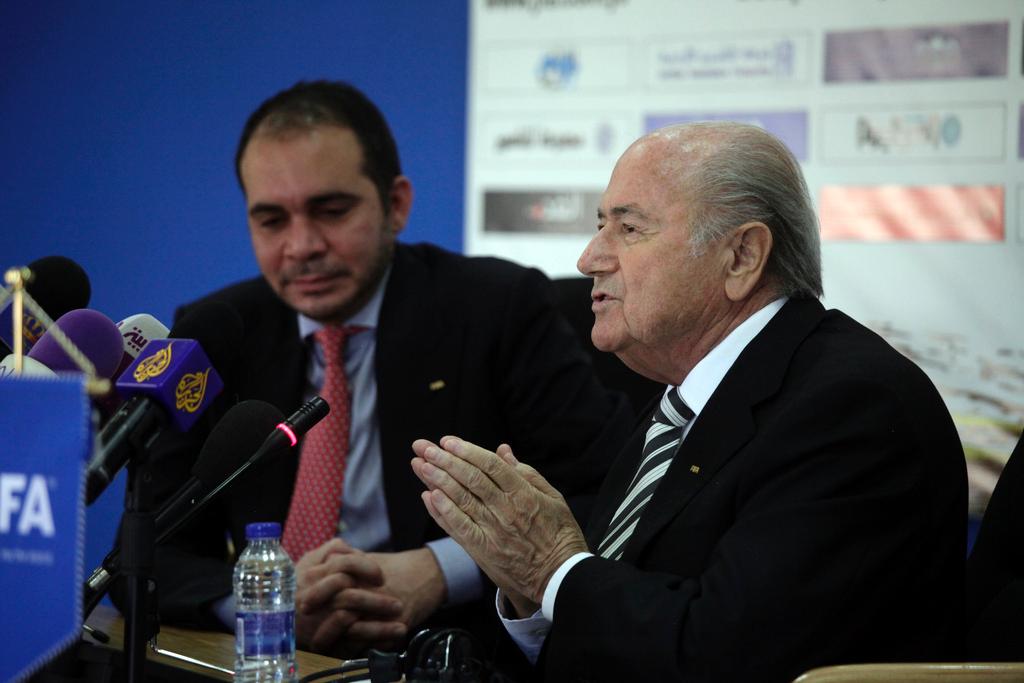

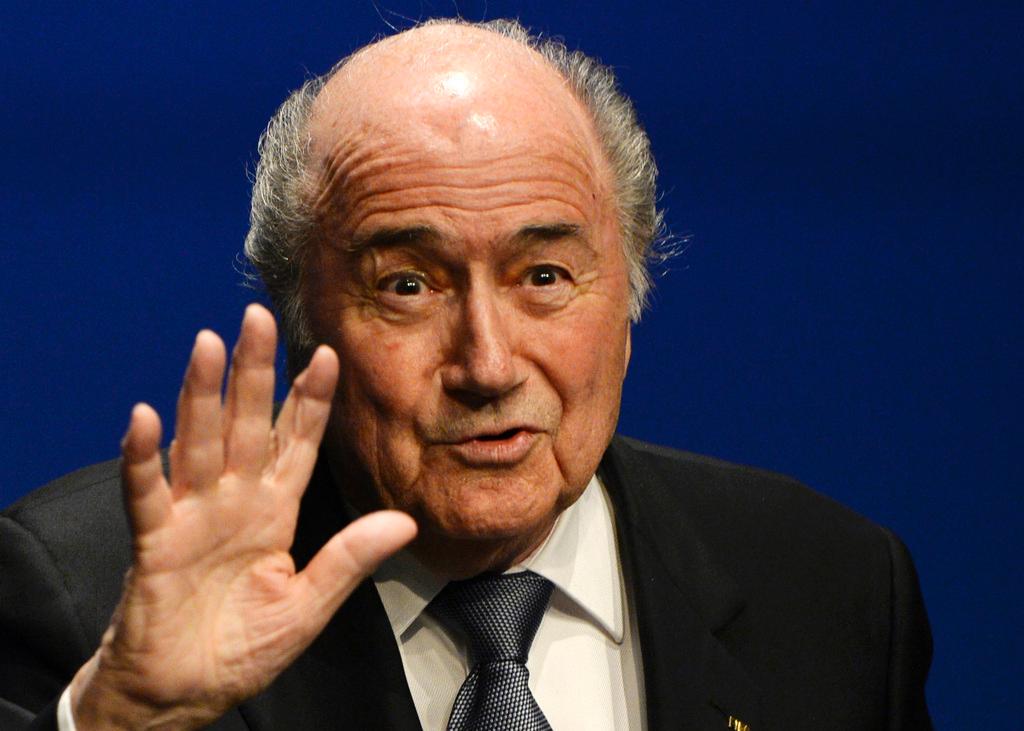
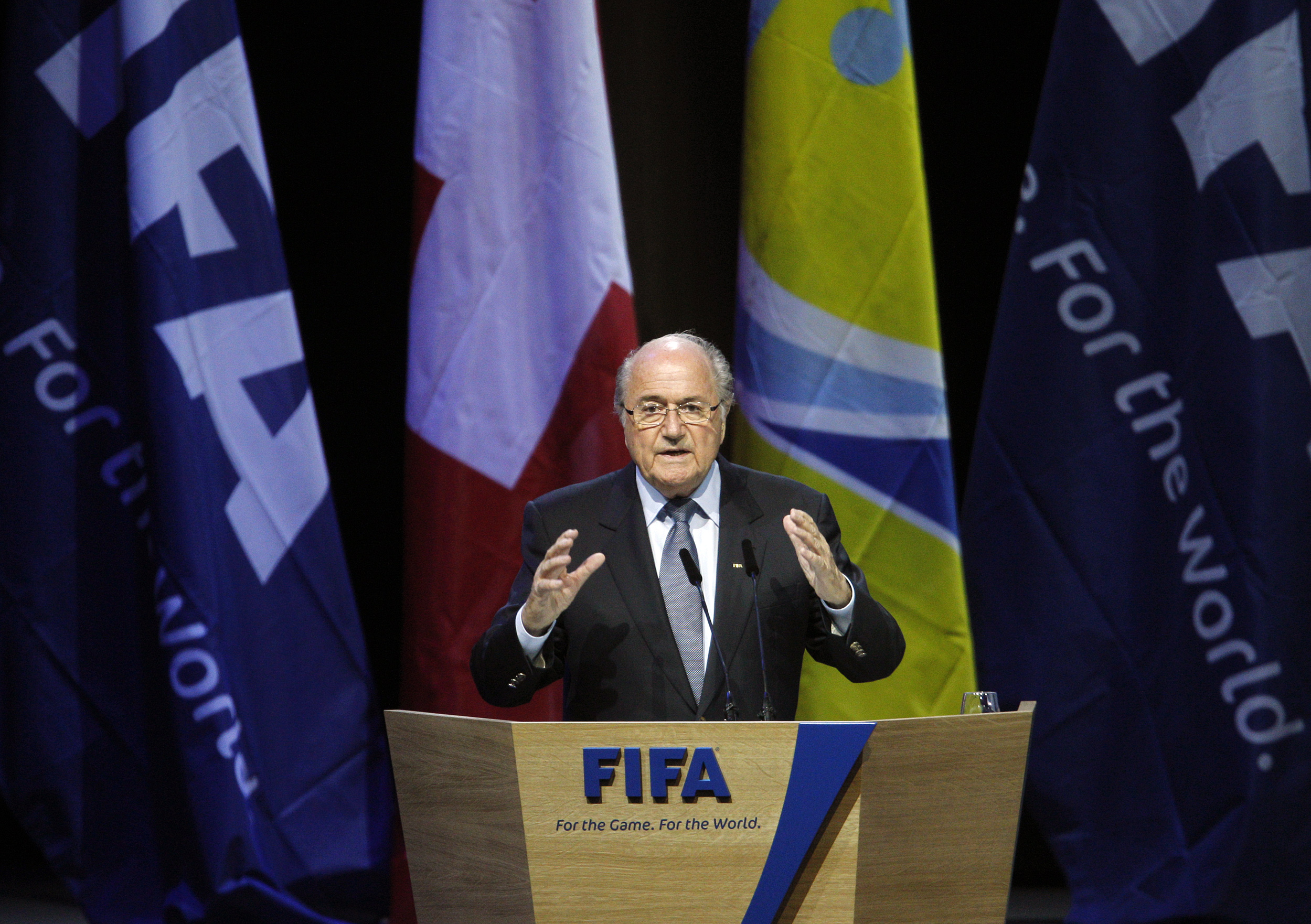
You can find an overview of ongoing debates with our journalists here . Please join us!
If you want to start a conversation about a topic raised in this article or want to report factual errors, email us at english@swissinfo.ch.